The strength of the Monarch Collaborative comes not only with the initiatives we undertake together, but the collective of all of our members’ own monarch and pollinator initiatives. We’d like to take a moment to share some of the great monarch and pollinator work occurring from our members.
American Soybean Association (ASA)
ASA continues to strongly support the Monarch Collaborative and provide hands-on farmer leadership to the effort. In September, two past chairs of ASA’s Conservation advocacy team, Wayne Fredericks of Iowa and Charles Atkinson of Kansas, met with the Director of the U.S. Fish and Wildlife Service (FWS), Aurelia Skipwith. The farmers shared their concerns about the potential listing of the monarch butterfly as an endangered species and explained the resources on the Farmers for Monarchs website. Skipwith assured the ASA leaders that their work makes a difference and pointed out the advantage of having private landowners set aside just one or two acres of non-cropland rather than needing large acreages in order to build monarch habitat.
ASA also hosted a successful #Beans4Monarchs social media campaign. Nearly 100 photos of monarchs and monarch habitat were posted, garnering almost 150,000 social media impressions.
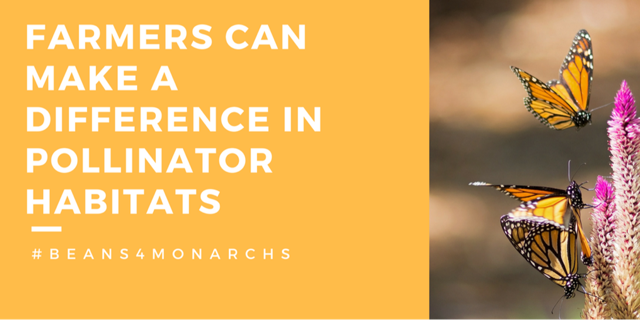
The Bee & Butterfly Habitat Fund
The Bee & Butterfly Habitat Fund is a unique collaboration supporting the establishment of pollinator habitat by providing (free of charge) seed mixtures and the technical guidance to establish and manage the habitat. Their pollinator habitat efforts are designed to meet the critical habitat needs for honey bees, monarch butterflies and a wide range of pollinator species.
The organization develops affordable, pollinator-focused seed mixes, in an innovative fashion of establishing two different pollinator seed mixtures on every project. Projects eligible for support include private, public and corporate lands that are at least two acres in size.
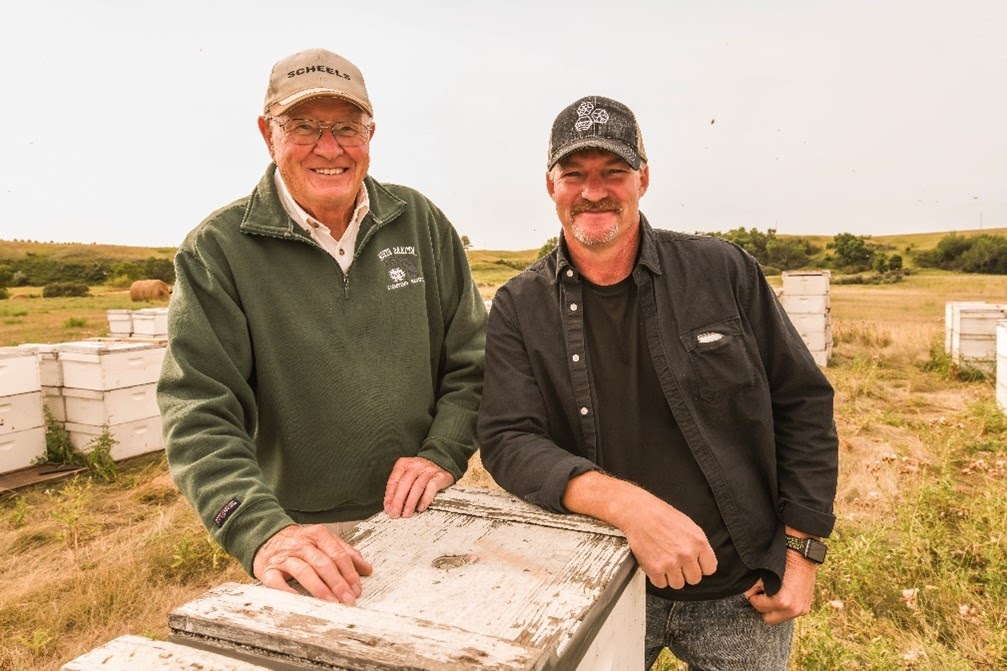
Monarch Joint Venture (MJV)
To ensure that all farmers, landowners, and land managers have the resources they need to inform multi-beneficial conservation efforts, the MJV is growing its capacity to support habitat projects on private working lands. In addition to a wide range of educational resources and webinars provided through the partner network, a full-time Pollinator Habitat Specialist provides technical assistance for private working lands in the California Central Valley. The MJV Agriculture Program Coordinator maintains a Pollinator Habitat Help Desk and helps manage the Farmers for Monarchs website. Additionally, the MJV Ag Coordinator regularly updates farmer informational materials and works directly with ag operators to create habitat on their production sites across Minnesota. In collaboration with federal and private partners, the MJV team uses remote sensing technology and machine learning to monitor habitat and census milkweed stems on the landscape.
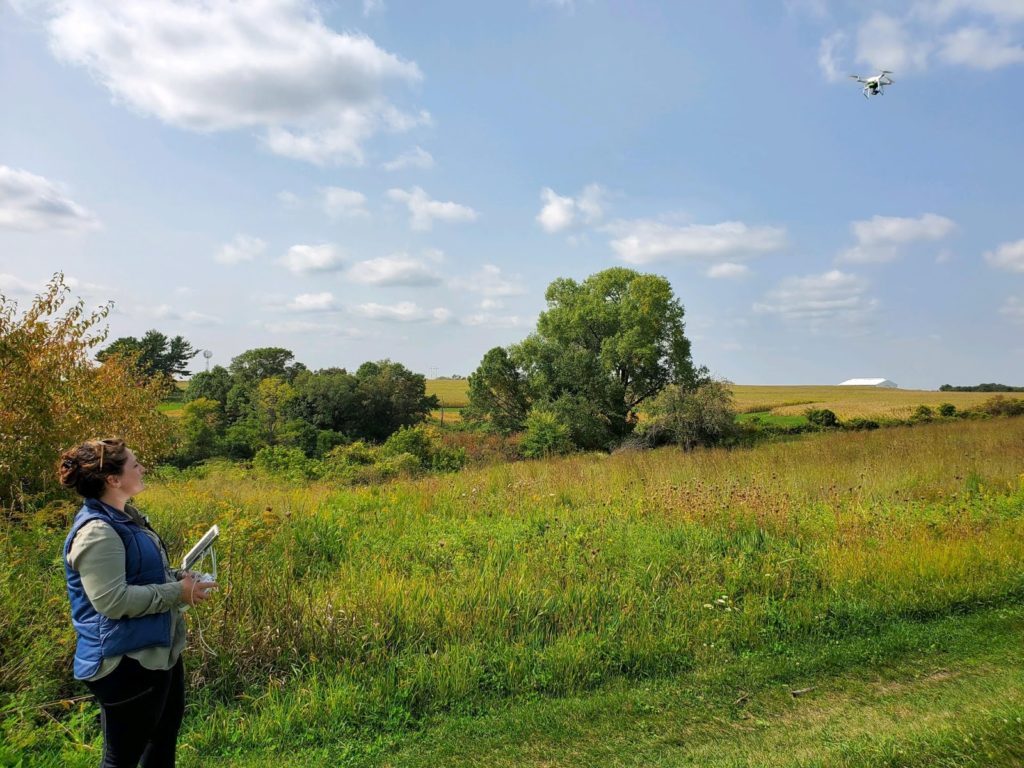
Pheasants Forever and Quail Forever
Pheasants Forever and Quail Forever’s Farm Bill biologist program is designed to educate farmers and landowners about the benefits of federal, state, and local conservation programs, as well as assist those landowners after programs have been implemented. The program is referred to as a ‘One Stop Shop’ for anything conservation and wildlife-related on private lands. Find a biologist near you.
In addition to the Farm Bill Biologist program, Pheasants Forever and Quail Forever support agricultural producers by assisting them in understanding how their farm specific data can serve as a guide to identifying areas where management changes and conservation programs can improve the profitability of low-yielding areas. Learn more about the precision ag programs.
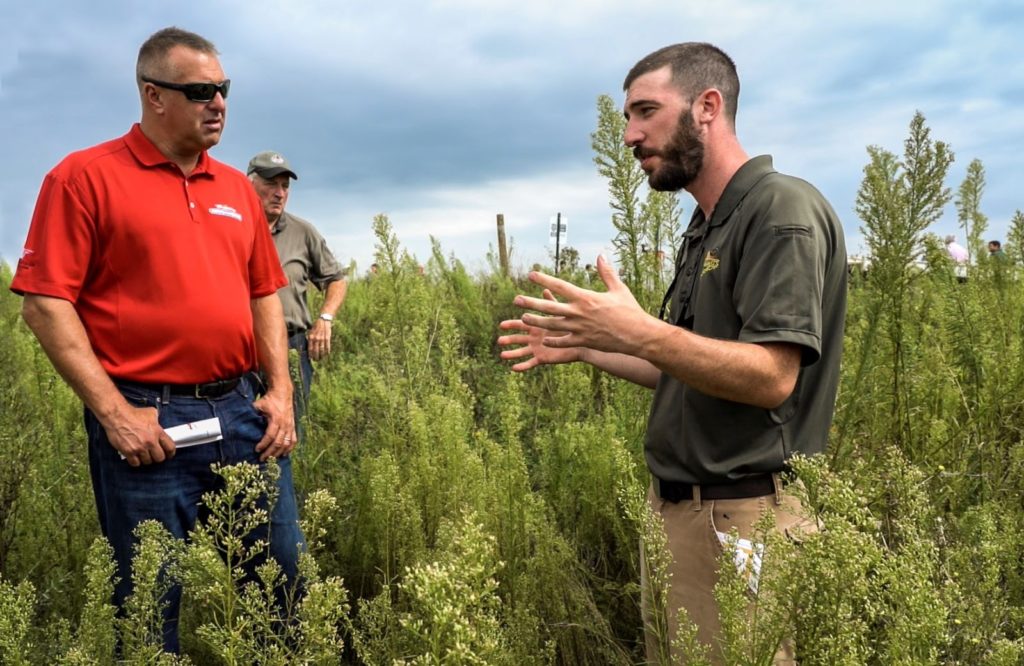
National Association of Conservation Districts
The National Association of Conservation Districts (NACD) launched a virtual Conservation Education Hub in early March of 2020, which hosts free, downloadable education materials for traditional and nontraditional classrooms. The Conservation Education Hub also includes NACD’s new Pollinator Field Day Guide, developed through support from the David Rockefeller Fund Pollinator Education Initiative Grant and the Pollinator Partnership. This new curriculum is designed to provide interactive learning experiences for grades K-8, engaging them in habitat-focused, pollinator-themed activities for the classroom and outdoors. Each activity has been correlated to education standards and provides a pathway to valuable partnerships with local soil and water conservation districts.
NACD and its member conservation districts also celebrated the 65th Annual Stewardship Week from April 25 – May 2, with the theme “Where Would We BEE Without Pollinators?” Pollinator themed educational materials are available for free download from NACD’s Conservation Education Hub. NACD also holds an annual poster contest with the NACD Auxiliary celebrating that year’s Stewardship theme – winners of the “Where Would We BEE Without Pollinators” poster contest will be revealed at NACD’s 75th Annual Meeting, held virtually in February 2021.
U.S. Fish and Wildlife Service
The U.S. Fish and Wildlife Service has conserved more than 1.5 million acres of monarch and pollinator habitat nationally. This success is from working together, including through partnerships with agricultural producers to create and conserve habitat on private lands. The monarch listing decision under the Endangered Species Act remains on track for December 15, 2020. Wherever the decision ultimately lands, the Service will continue working together to conserve monarchs. Building upon the momentum and enthusiasm around monarchs, the Service is broadening its conservation focus to include all pollinators. They look forward to continuing to collaborate with diverse entities for pollinator conservation. Learn more at Save the Monarch Butterfly website.
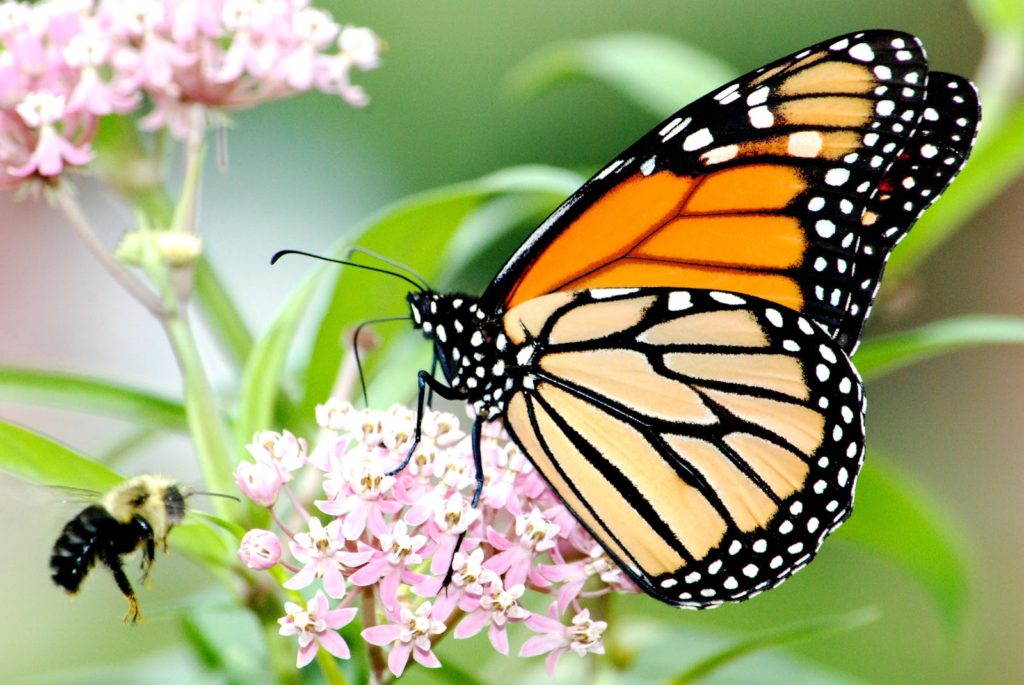
We are proud of the work being done by our Monarch Collaborative member organizations. If you have an interest in providing habitat for monarch butterflies and other pollinators, contact one of the groups listed above. Even an acre or two of quality pollinator habitat can help.
